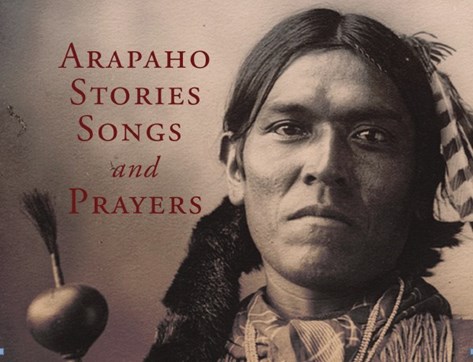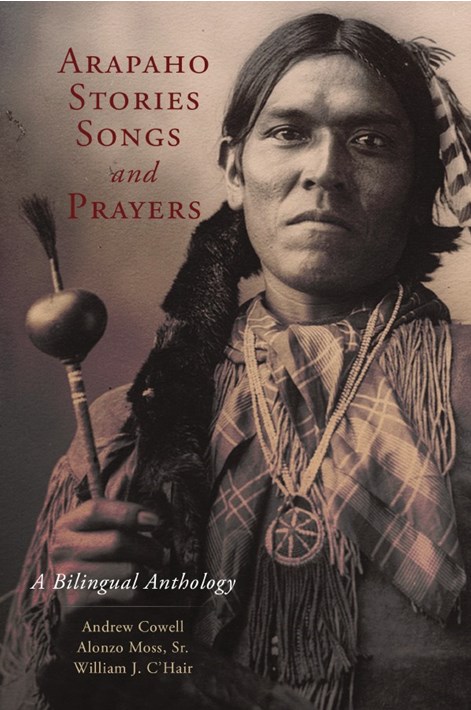
A rapid extinction is going on around the world. In places like Canada, Australia, Latin America, and Southeast Asia, native languages are disappearing. An indigenous language is forgotten every 14 days, according to a High Country News report. It's happening here in the United States, too.

"Ironically, the Internet age is probably one thing that's working against indigenous languages," says Andrew Cowell, a linguistic anthropologist at University of Colorado Boulder. "Because a lot of these languages don't have users who have websites, they haven't had things like movies and television stations and radio stations."
So when Cowell learned about hundreds of forgotten manuscripts containing traditional stories in Arapaho at the Smithsonian, he got to work trying to preserve the language. He asked two native speakers to help him translate and transcribe the writings, and produced a bilingual anthology called "Arapaho Stories, Songs and Prayers."
Andrew Cowell and one of his co-authors, William C'Hair, spoke with Colorado Matters host Ryan Warner. Read highlights from the conversation below. Audio from the full interview will be available after noon.
Hear CPR host Jon Pinnow read from the anthology:
Cowell on the hidden history in the Arapaho language
"This is really part of American culture, I think, in the broadest sense... We live on land that was Arapaho land. We use place names every day in Colorado, things like Kawuneeche Valley in Rocky Mountain National Park -- those are Arapaho words. And the stories give us a new view of that landscape we live in and the world we live in that comes from people who were here before us, and who knew this landscape in a way very different than the way we know it, or really ever can know it, now living in the suburbs of Boulder and Denver."
Cowell on why it's important to preserve indigenous languages
"We have Shakespeare in English and people still read Shakespeare, and they still appreciate it even if they have some trouble with some of the words, and even if they don't talk that way anymore they can appreciate the value of it. I really see this anthology, and other anthologies being done in this kind of way, as contributing to the Shakespeare of native America in a sense where those traditions, and the richness of the stories is going to be preserved for the future, even for people who aren't fluent speakers."








